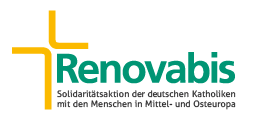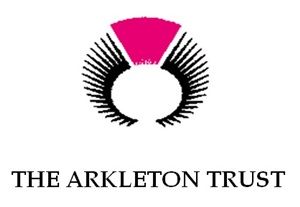Europe
Main Donors
European Commission >
ERASMUS+ Programme
 Erasmus + (2014-2020) is the new 16 billion euro catch-all framework program for education, training, youth and sport. It is built on the well-known and respected EU brand of the highly successful Erasmus student exchange program. All previous programs like Youth in Action, Erasmus and LLP are included in Erasmus+. It is divided into 3 principal pillars: education and formation, youth, and sport.
Erasmus + (2014-2020) is the new 16 billion euro catch-all framework program for education, training, youth and sport. It is built on the well-known and respected EU brand of the highly successful Erasmus student exchange program. All previous programs like Youth in Action, Erasmus and LLP are included in Erasmus+. It is divided into 3 principal pillars: education and formation, youth, and sport.
The main objective of Erasmus plus is to improve employability of the youth by acquiring supplementary competences appreciated by employers, as well as improving their language skills and flexibility.
The youth sector part will be based around three different types of projects, known as Key Actions. These three Key Actions are:
• Key Action 1:Learning mobility of individuals; It is addressed to Staff (teachers, trainers, school leaders and youth workers) and students. Here we can find the old Youth in Action actions 1.1, 3.1, 2 (EVS), 4.3 (which now can be up to 2 months).
• Key Action 2: Co-operation and Innovation for Good Practices; It is addressed to Universities, international NGOs and youth workers. In this action will be included the old 1.2 action, but only the trans-national youth initiatives. The national youth initiatives will disappear. It will also be included short term and long term EVS for youth workers.
• Key Action 3: Support for Policy Reform; In this action will be included the old action 5 from Youth in Action. It will also be included EU presidency events and Council of Europe events. You can find out more about the ERASMUS+ Programme here.
Council of Europe >
European Youth Foundation
 The European Youth Foundation (EYF) was established in 1972 by the Council of Europe to provide financial support for European youth activities. Since then, more than 300 000 young people, aged between 15 and 30, mostly from member states, have benefited directly from EYF-supported activities. Its purpose is to encourage co-operation among young people in Europe by providing financial support to such activities which serve the promotion of peace, understanding and co-operation in a spirit of respect for the Council of Europe's fundamental values such as human rights, democracy, tolerance and solidarity.
The European Youth Foundation (EYF) was established in 1972 by the Council of Europe to provide financial support for European youth activities. Since then, more than 300 000 young people, aged between 15 and 30, mostly from member states, have benefited directly from EYF-supported activities. Its purpose is to encourage co-operation among young people in Europe by providing financial support to such activities which serve the promotion of peace, understanding and co-operation in a spirit of respect for the Council of Europe's fundamental values such as human rights, democracy, tolerance and solidarity.
MIJARC Europe has been funded by the EYF since almost its beginning. It is a very important donor to us. We receive the Administrative Grant (structural support) and support for our publication InfoEurope, this website and seminars.
Get to know more about the European Youth Foundation has to offer here.
European Youth Centres
The European Youth Centres (EYCs) in Strasbourg and Budapest are permanent structures for the implementation of the Council of Europe’s youth policy. They are international training and meeting centres with residential facilities, hosting most of the youth sector’s activities. They provide a flexible and modern working environment for international activities, with meeting rooms equipped for simultaneous interpretation, information centres, audio-visual and computer facilities. International Youth Organisations can apply to hold study sessions in one of these EYCs. Get to know more here.
Renovabis >
 In March 1993, German Bishops and the Central Committee of German Catholics have established "Renovabis" as an "action for mutual solidarity of German Catholics with people in Central and Eastern Europe". Ever since then Catholics in Germany are supporting the action by means of donations and collections, which are annually gathered during the Pentecostal season.
In March 1993, German Bishops and the Central Committee of German Catholics have established "Renovabis" as an "action for mutual solidarity of German Catholics with people in Central and Eastern Europe". Ever since then Catholics in Germany are supporting the action by means of donations and collections, which are annually gathered during the Pentecostal season.
MIJARC Europe has benefited from the support of Renovabis who co-financed travel costs from participants of Eastern European Countries coming to our International Seminars.
Know more about Renovabis here.
The Arkleton Trust >
 The Arkleton Trust was founded in 1977 “to study new approaches to rural development and education” and “improve understanding between rural policy makers, academics, practitioners and rural people”. The Arkleton Trust has a long history of supporting national and international approaches to rural development policy and practice and encouraging the sharing of experience and knowledge gained, with particular emphasis on assisting and promoting rural development in the poorer and developing countries around the world. It has done this through a range of mechanisms, including publications, seminars, study tours, fellowships.
The Arkleton Trust was founded in 1977 “to study new approaches to rural development and education” and “improve understanding between rural policy makers, academics, practitioners and rural people”. The Arkleton Trust has a long history of supporting national and international approaches to rural development policy and practice and encouraging the sharing of experience and knowledge gained, with particular emphasis on assisting and promoting rural development in the poorer and developing countries around the world. It has done this through a range of mechanisms, including publications, seminars, study tours, fellowships.
Over the years, it has found that one of the most effective ways of transferring knowledge and expertise has been through study tours and exchanges between countries by groups and individuals. These often involve or are facilitated by governments, NGOs, universities and other establishments, but may also include less formal arrangements. The Arkleton Trust (‘The Trust’) is registered as a charity with the Charity Commission for England and Wales. More information about The Arkleton Trust can be found here.